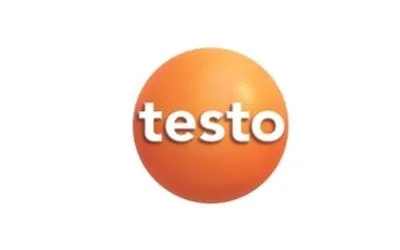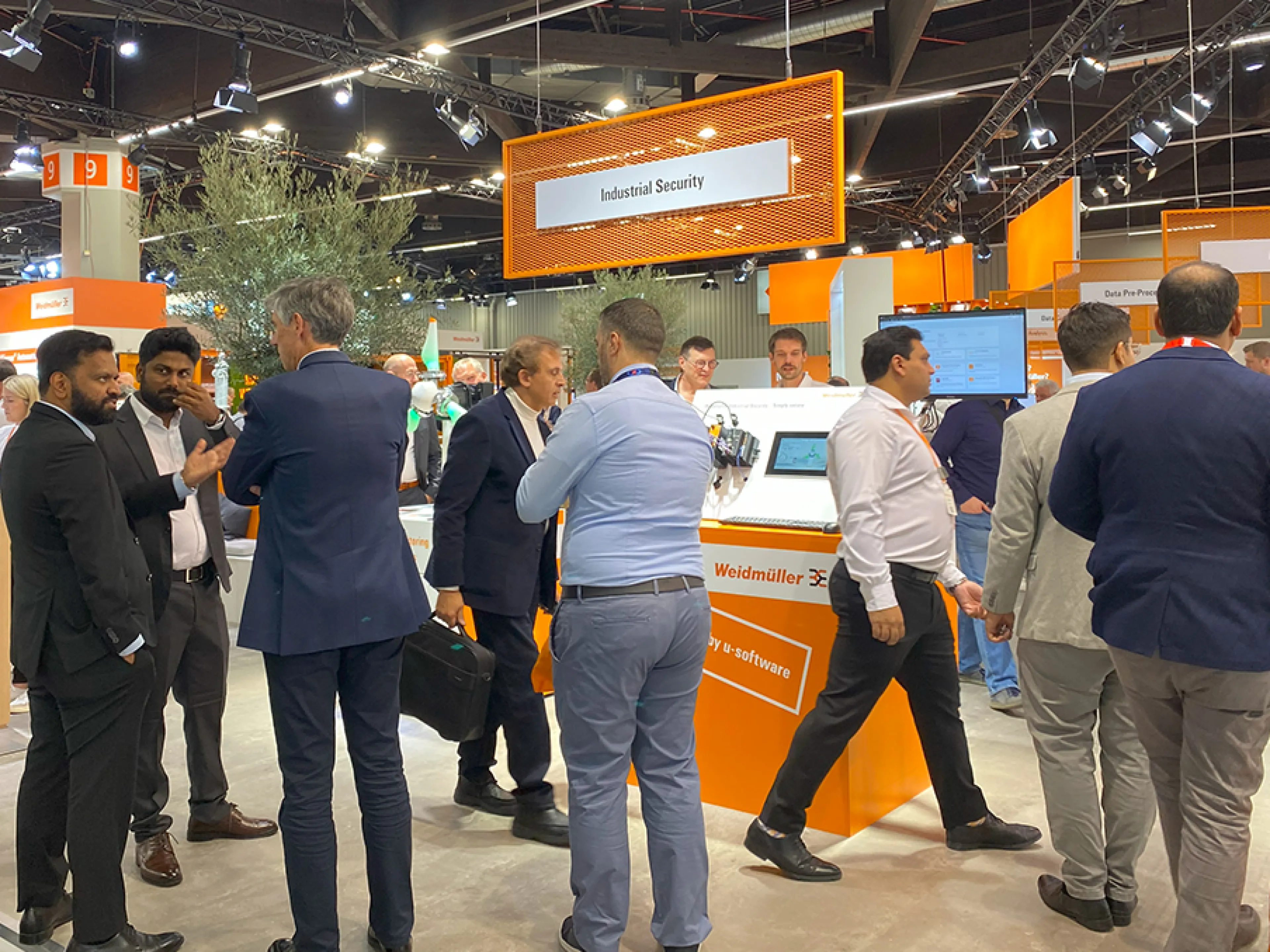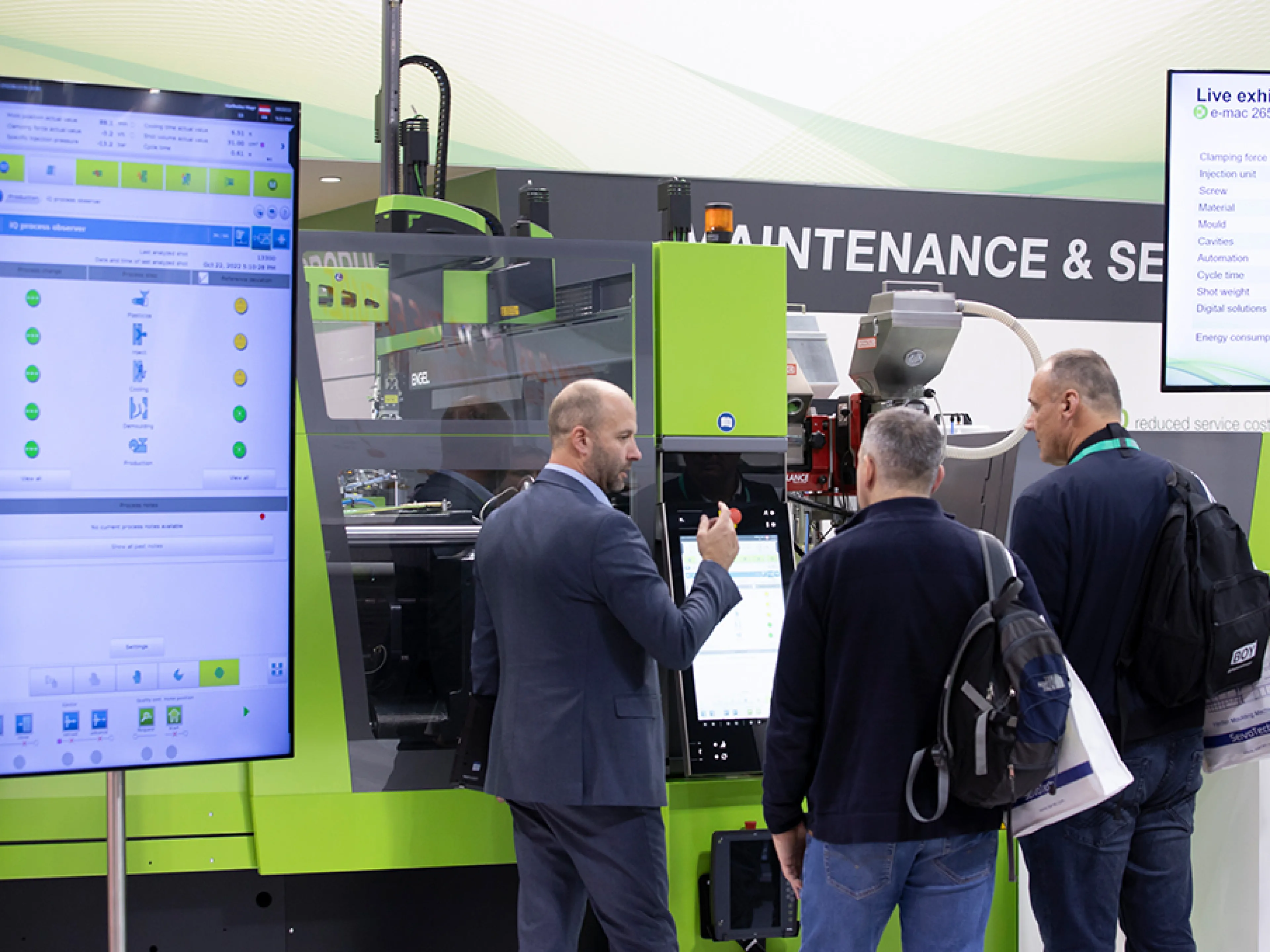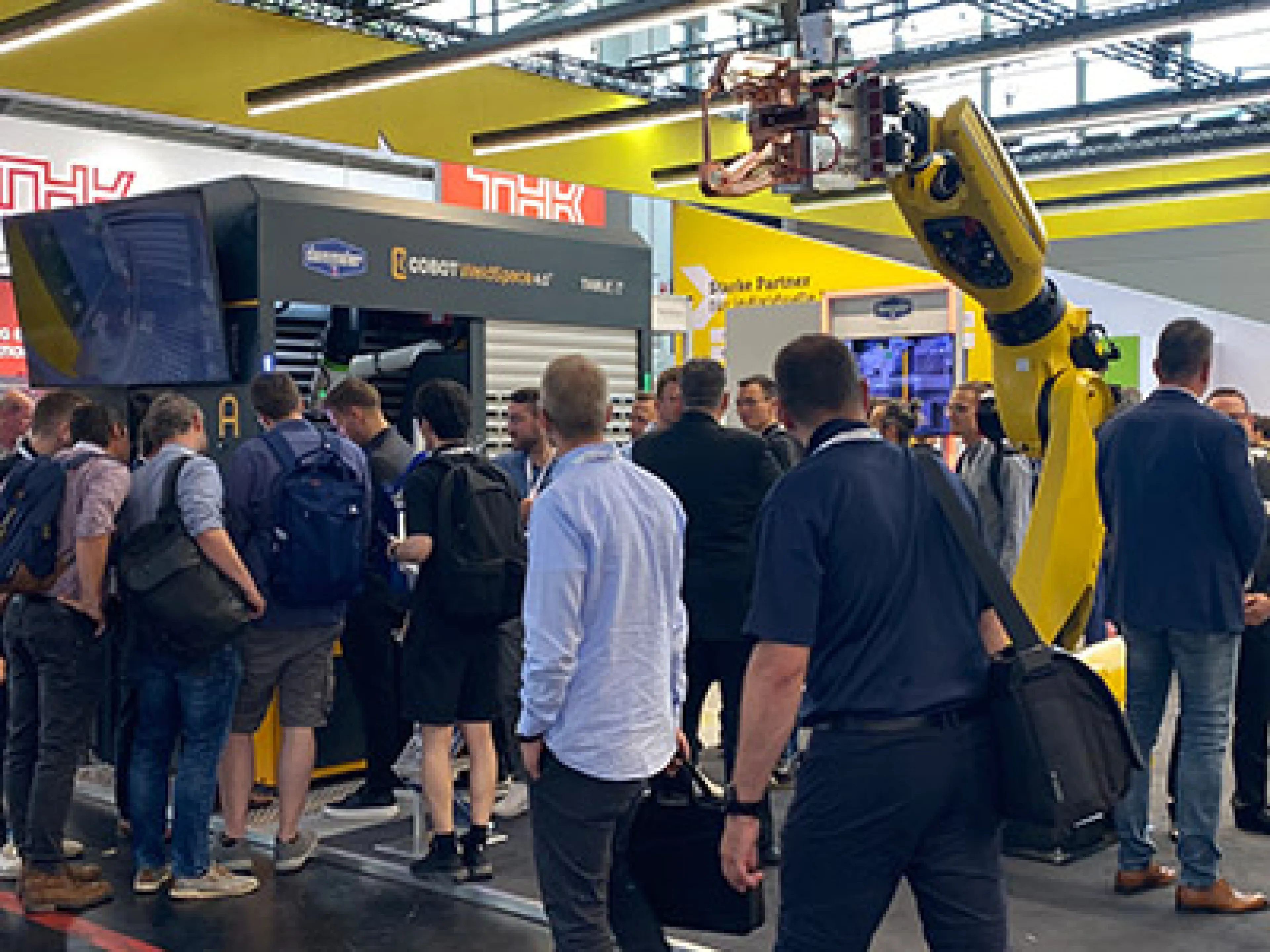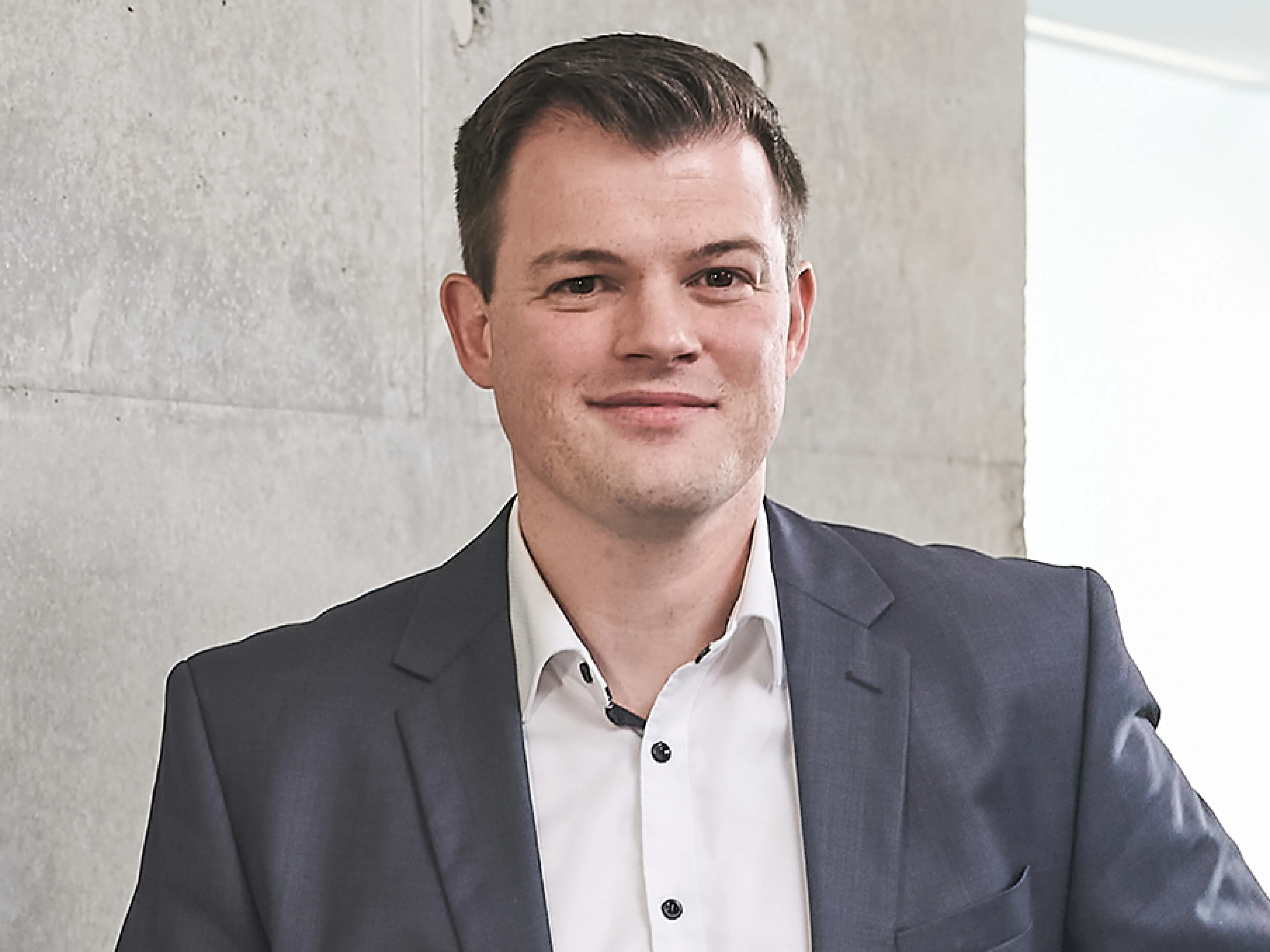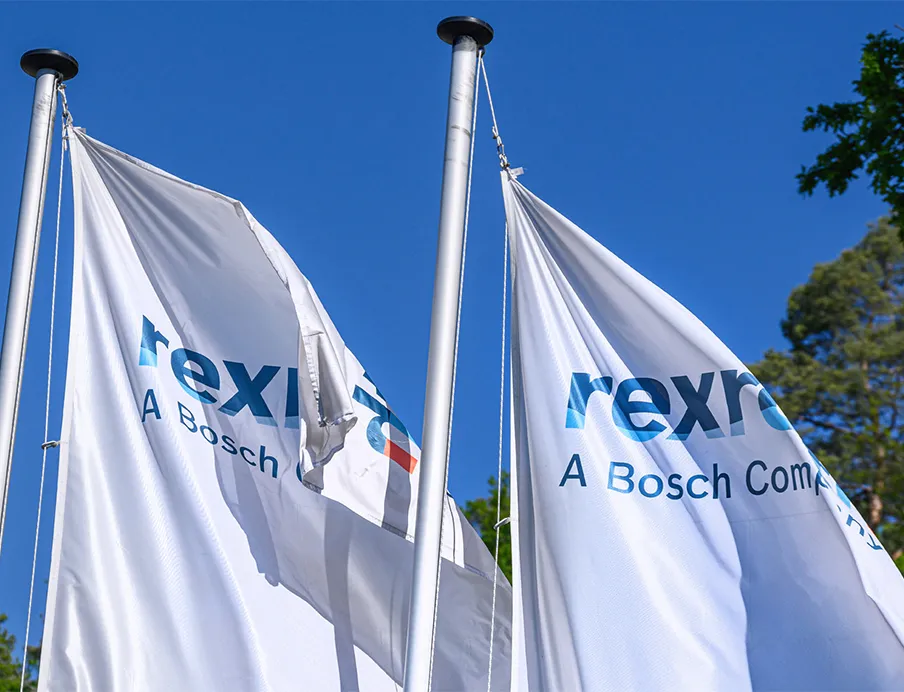
Like many automation companies, Bosch Rexroth ended the 2024 financial year in a difficult market environment. After two very strong years, sales in 2024 were around €6.5 billion. This corresponds to a decline of 13.6 percent compared to 2023. Sales fell most sharply in Germany and Europe, by around 19 percent. Bosch Rexroth generated around half of its sales in this region. In North and South America, sales were around 13 percent below the previous year's figure. In the Asia/Pacific/Australia region, sales only fell by just under one percent overall. The five percent decline in China, the third largest market for Bosch Rexroth worldwide, could not be fully offset by the positive business development in India, for example, with growth of over ten percent, or Malaysia, with an increase of almost 40 percent due to the significantly lower business volume.
Decline in order intake at Bosch Rexroth lower than in the previous year
The economic conditions were also reflected in the order intake. At €6.1 billion, it was almost five percent below the previous year's figure. That is around €300 million or 4.9 percent less than in the previous year. The decline is thus significantly lower than in 2023, when it was as much as 13.1 percent. The improvement in the figures during 2024 indicates a stabilization at a lower level in 2025. However, in view of the continued uncertainty in the global economic environment, customers are still drawing on their inventories in many cases and are reluctant to make investment decisions.
“2024 was a challenging year, as expected. We are currently seeing that the situation is stabilizing and are already working on being prepared for when the business picks up. We are looking ahead and want to emerge from this phase stronger than before in order to remain successful even in a difficult environment,” says Dr. Steffen Haack, CEO of Bosch Rexroth
Weak global economy: Bosch Rexroth takes countermeasures
The measures to counteract the weak global economy in the longer term include, for example, the bundling of activities at locations in China, America and Germany, as well as adjustments in manufacturing, development, administration and sales. Bosch Rexroth in China, for example, is now managing the activities of the product divisions much more independently. This enables the team in Bosch Rexroth's third largest market to act faster. Products are developed, produced and sold specifically for local requirements. In the factory automation business unit, Bosch Rexroth is focusing its global sales activities more strongly on future-oriented industries such as battery, semiconductor and consumer goods production.
Targeted investments and continuity in research and development
Bosch Rexroth's commitment to its customers and partners remains undiminished. The “CU.BE” customer and innovation center in Ulm, for example, has been modernized. There, the company uses specific applications to show how companies can optimize their plants and factories economically while also operating more sustainably. Bosch Rexroth has adjusted its own investment volume for 2024 to reflect the circumstances and, after the peak of the previous year, has returned it to the 2022 level at around €270 million. In 2024, the focus was on investments in production and logistics buildings at existing locations in Germany, North America and Romania. At around €460 million for long-term investments in research and development, the ratio is seven percent. These targeted investments and the high level of commitment to research and development, even in a difficult environment, underscore the company's confidence that business will recover and develop stably in the long term.
Outlook for 2025: Bosch Rexroth expects stabilization
In the current financial year, Bosch Rexroth expects to see a stabilization overall in terms of incoming orders and sales. With a view to future growth, the company continues to make targeted investments in new buildings, facilities and research and development. This is how the manufacturer is underpinning its long-term growth strategy.
“In the current fiscal year, we are currently seeing first signs of stabilization. Consistent cost reductions and a high degree of flexibility remain necessary in the current economic and political environment,” says Holger von Hebel, CFO of Bosch Rexroth. At the same time, the company is continuing to make targeted investments in its global production network and in key future fields such as digitalization, artificial intelligence, and hydrogen technologies. “With continuously improved products, solutions, and services, we support our customers in achieving economic success and acting more sustainably, even in difficult times. We are ready when business picks up again and our customers start to invest more,” says Haack.
